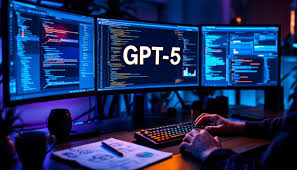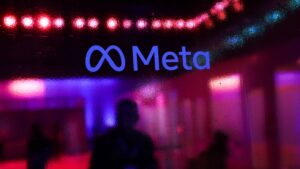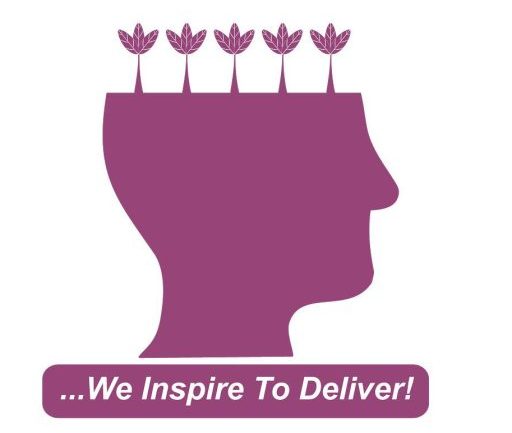Hey, Tech enthusiast! Your Daily Dose of Tech This Friday is here @DawentsIT …We Inspire To Deliver!
Your Daily Dose Of Technology News – October 03, 2025.
1. Emerging Tech & Research Highlights:

– Robotics & Autonomy
– A robotics company demoed warehouse robots using multimodal perception stacks (vision + lidar + language prompts) to handle complex picking tasks with fewer hand-coded rules. Integration of language models for task instruction is maturing.
– Implication: Faster deployment cycles for robotics in constrained industrial settings.
– Quantum computing
– A startup reported an incremental improvement in qubit coherence using novel materials; the result is interesting but far from an error-corrected scale. Large cloud providers continued incremental progress on quantum-classical integrations for near-term algorithms.
– Implication: Quantum remains long-term; enterprise interest limited to niche research and potential early advantage-seeking partnerships.
In Other News:
2. Privacy, Security & Regulation:
– US and EU regulatory activity
– EU agencies released guidance clarifying how the AI Act will apply to foundation models offered as services, focusing on transparency, risk assessment, and incident reporting. Companies offering model-hosting services will need to supply technical documentation and external audits for certain use cases.
– The US FCC and FTC discussed potential frameworks for labeling AI-generated content in political ads; meanwhile, several state-level bills on biometric data use gained traction.
– Implication: Compliance costs for model providers rise; political advertising and biometric use will be tightly watched ahead of 2026 elections.
– Major cybersecurity incidents
– A supply-chain ransomware attack hit a mid-sized cloud managed service provider, briefly disrupting services for several SaaS customers; the provider restored backups after a short outage. This renewed discussion about zero-trust, software bill of materials (SBOMs), and secure supply-chain practices.
– Implication: Enterprises accelerate zero-trust and SBOM adoption.
3. AI & Machine Learning:
GPT-5 ecosystem & regulation-

– As GPT-5-based systems proliferate, governments and standards bodies published new coordination statements. The US National Institute of Standards and Technology (NIST) issued updated evaluation frameworks for large multimodal models, emphasizing robustness, factuality, and red-teaming metrics. The EU’s AI Act implementation guidance pointed to stricter requirements for “high-risk” generative systems used in hiring, legal or medical contexts.
– Several major companies announced internal AI model registries and external model cards to improve transparency. Open-source LLM projects continue, but contributors warned about compute/backing constraints.
– Implication: Expect more standardized testing and certification requirements for commercial AI deployments.
– Safety incidents and content moderation
– A few high-profile content-moderation incidents involving generative image and audio tools were reported this week—deepfake audio used in a social scam and a generative image tool producing problematic outputs despite guardrails. Companies responded by tightening rate limits, improving watermarking, and retraining filters.
– Implication: Short-term emphasis on watermarking, provenance tracking, and stricter API vetting for high-risk use cases.
4. Big Tech & Corporate moves:
– OpenAI: partnership & pricing shift
– OpenAI announced a multi-year partnership with Microsoft expanding enterprise access to GPT-5-based services through Azure OpenAI. The deal deepens cloud integration, offers dedicated compute for enterprise workloads, and includes tighter joint R&D on safety and multimodal models.
– OpenAI also introduced a revamped tiered pricing model for API and ChatGPT Enterprise: higher-performance real-time endpoints and private-hosting options at premium rates, while offering lower-cost “inference-lite” endpoints aimed at consumer apps. Reaction: developers praised clearer SLAs and private hosting but raised concerns about price increases for heavy inference use.
– Implication: Microsoft’s cloud lock-in for large customers may grow, while startups will evaluate new cost/performance trade-offs.
– Apple: hardware refreshes and mixed-reality signal
– Apple held a product announcement event focused on Mac and iPad updates. New M4-series chips (M4 Pro and M4 Max) were introduced with modest single-thread gains and larger GPU/watt improvements, aimed at pro creative workflows. New MacBook Pros carry updated displays and battery life gains.
– No major mixed-reality headset refresh was announced; analysts read that as Apple pacing its AR/VR roadmap and focusing on core hardware profitability ahead of rumored 2026 headset updates.
– Implication: Mac performance leadership remains intact; investors monitor Mac margins and whether mixed-reality progress slows.
– Google: Gemini and search changes
– Google rolled out a Gemini multimodal model update emphasizing on-device inference for Pixel phones and desktop. They announced expanded “Search with Gemini” features that integrate longer-form model answers into search results with clearer citations, plus a pilot paid tier for advanced generative search capabilities.
– Regulatory attention follows: EU and US regulators continue scrutinizing how Google blends ads and generative answers.
– Implication: Google seeks to defend search dominance by blending generative models into core search, while monetization experiments accelerate.
5. Semiconductors & Hardware supply chain:
– TSMC & chip capacity
– TSMC announced capacity expansion in Japan and additional EU fab partnerships to support high-end logic and advanced packaging. The move is partially driven by geopolitical diversification and customer demand for M4-class chips and AI accelerators.
– Intel reported ramp progress for its next-gen AI accelerators (Gaudi-class competitor) and provided guided yields improvements; AMD updated its roadmap with new CDNA-based accelerators targeted at datacenter inference.
– Implication: Competition for advanced-node capacity remains fierce; enterprise AI deployments will continue to push demand for specialized accelerators.
– Consumer devices & wearables
– Samsung launched new Galaxy Watch and foldable devices with improved sensors and battery life, emphasizing health features (blood pressure monitoring refinements, improved sleep tracking). Qualcomm previewed next-gen Snapdragon X-series for wearables with better always-on AI inference.
– Implication: Wearables continue to be a battleground for health features and on-device AI.
Odds And Ends:
6. Consumer tech & platforms:

– Social media & content moderation
– Meta and X updated policies and enforcement tools to better handle AI-generated misinformation and deepfakes, expanding detection partnerships and requiring provenance labels for certain high-risk content categories.
– Apple tightened App Store rules around apps that generate synthetic audio/video of public figures, requiring explicit user consent and provenance metadata.
– Implication: Platform-level provenance and labeling will become standard practice over the next year.
– Gaming & entertainment
– A major game studio expanded use of generative tools for asset creation (procedural textures, NPC dialogue), saying they reduced production time but added new QA challenges. Console makers previewed subscription pricing tweaks for cloud gaming tiers.
– Implication: Generative tools reshape game dev workflows but raise IP and quality-control questions.
7. Startups, Funding & Markets:
– Funding environment
– AI startups focused on vertical SaaS, agent orchestration, and specialized modalities (scientific models, robotics perception) continued to raise rounds, though at more cautious valuations than 2021–2024 peaks. Notable trends: investor interest in startups offering cost-effective inference and model distillation services.
– Implication: Capital remains available for differentiated, revenue-generating AI startups; speculative bets are less favored.
– Layoffs & hiring
– Another round of modest layoffs in some Big Tech AI research groups was reported as companies re-prioritize productization and efficiency. Hiring remains strong for applied ML and infrastructure engineering roles supporting enterprise AI.
What to watch next:
– Implementation details of the OpenAI–Microsoft enterprise deal (pricing, data residency).
– EU AI Act enforcement guidance and how model catalogs/registries are adopted.
– Apple’s roadmap signals about mixed-reality — whether a hardware cadence shift appears ahead of 2026.
– New tools and standards for watermarking/provenance and publisher/creator verification.
– Semiconductor capacity announcements and any new foundry partnerships.
If you need a summary on any specific topic or more detailed information on emerging tech trends, feel free to ask us @DawentsIT or visit our website at www.dawentsit.com
Follow us for updated news, articles, and videos. Read more on http://www.dawentsit.com/ #Technology #DawentsIT #TechnologyNews #Tech #AI #NIST #FCC #FTC #EU #AllThingsTechnologyNews #AllThingsTechnologyNewsToday #WeInspireToDeliver
